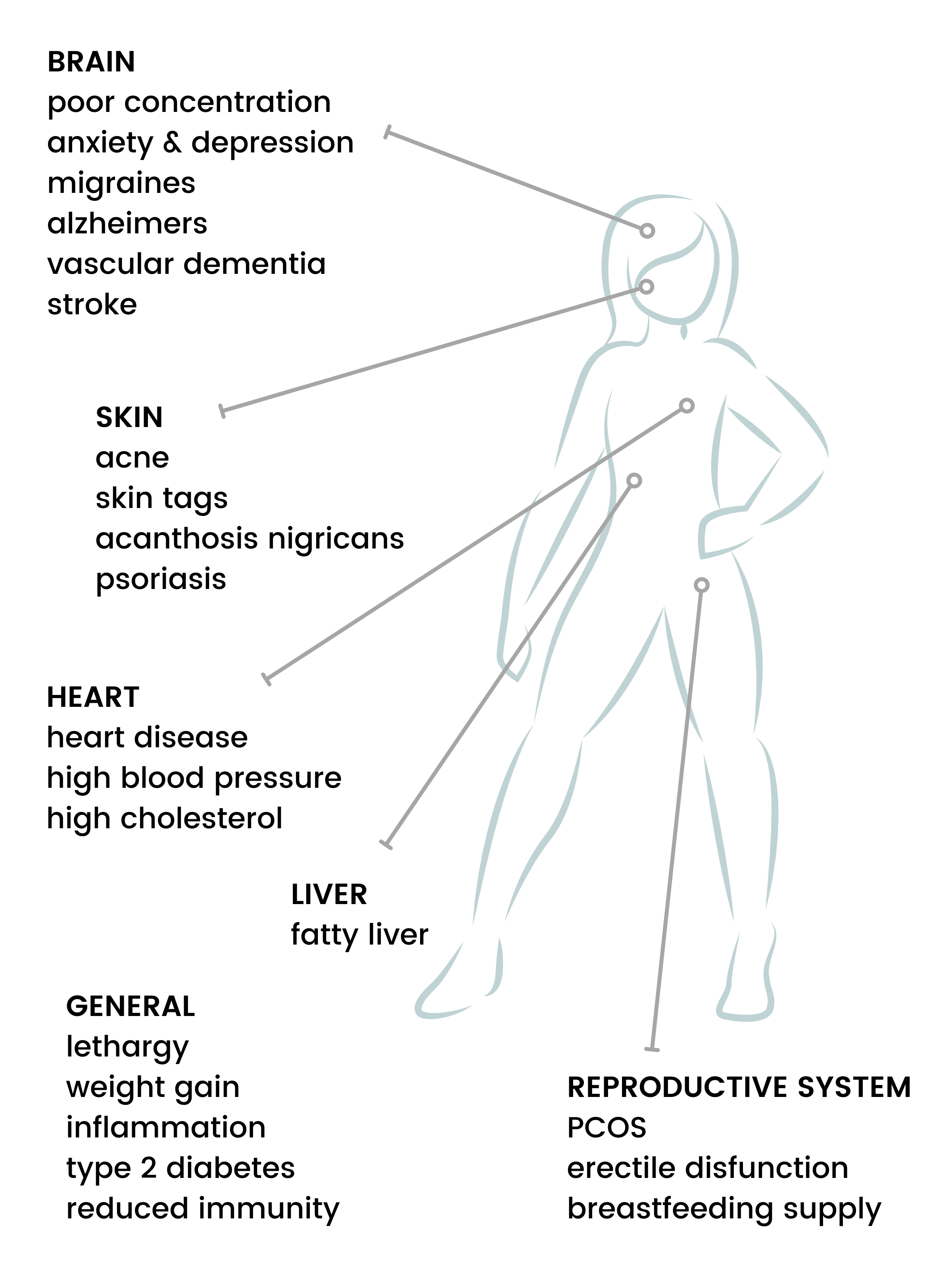
Insulin.
Insulin is a hormone that’s extremely important for health, and directly impacted by the food we eat. It tells the body what to do with energy from food, and is most famous for regulating blood sugar levels.
High blood sugar is toxic so, when levels rise, insulin is released to bring blood sugar back into a normal and safe range. Insulin does this by telling the body to burn sugar for fuel, and store excess sugar as fat.
Insulin regulates blood sugar levels.
When insulin levels fall the body switches to fat burning mode, breaking down body fat to use as fuel.
High Insulin.
Releasing insulin is a normal and healthy response to rising blood sugar, but if blood sugar levels go very high (“spike”), a large amount of insulin is needed to bring them back to normal.
Large amounts of insulin often cause blood sugar levels to crash (fall too low) which can leave us tired, irritable, hungry and craving sugar, within a couple of hours of eating.
Blood sugar crashes cause hunger.
Repeated blood sugar spikes and elevated insulin is unhealthy and often leads to weight gain. This makes sense, because high insulin causes fat storage and hunger.
It can also impact mood, immune function, concentration, energy levels, and our skin. Prolonged high insulin causes a condition called insulin resistance.
Insulin resistance.
If we regularly consume food that spikes blood sugar, insulin gets too high, too often. Over time, some cells in the body become numb to the constant high insulin and don’t respond as well to its instructions - this is called insulin resistance.
As a result, the body has to produce even higher levels of insulin for it to have the same effect. Insulin levels stay high all the time, long after eating and overnight. Over time elevated insulin causes inflammation and can result in chronic diseases like diabetes, fatty liver, high blood pressure, obesity and Alzheimer’s dementia.
Some cells do not become insulin resistant, and continue to react to insulin in the normal way. Prolonged high insulin over-stimulates these cells, causing other medical conditions, such as Polycystic Ovarian Syndrome (PCOS).
High insulin either causes, or worsens, almost every chronic disease.
- Dr Benjamin Bikman PHD
Symptoms.
High insulin (and insulin resistance) can affect many different parts of the body, leading to a full range of symptoms and conditions.
To learn more about some of specific conditions click the links below:
Weight gain
High blood pressure
High cholesterol
Polycystic ovarian syndrome
What next?
Avoiding blood sugar spikes allows insulin to fall and helps to reverse insulin resistance.
Almost every chronic disease is either caused, or made worse, by elevated insulin. So to improve our health it’s essential that we know what foods spike blood sugar.
Although there are some obvious ones (think lollies and chocolate!), some of the other foods may surprise you!
Read.
Take a look at the high-quality evidence showing the association between insulin resistance, weight gain and chronic disease.




